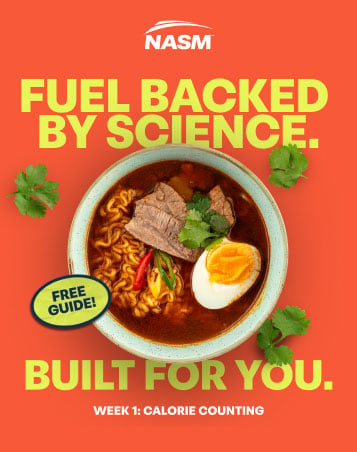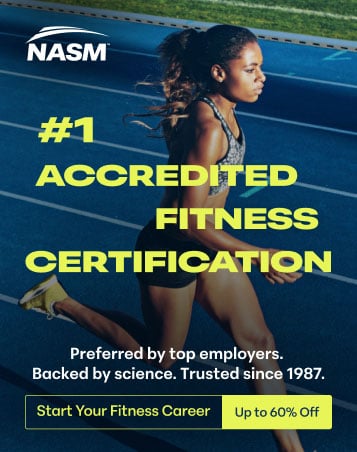The Supplement Industry
Supplements are big business. The global nutritional supplement market was valued at 132.8 billion US dollars in 2016, and it has been projected to reach almost 300 billion US dollars by 2024.
Let's compare this to the pharmaceutical market, which is valued at about 790 billion USD and will reach 1.12 trillion US dollars in 2022. This means that the nutritional supplement market is roughly 20% of the market size (in terms of dollars). That is pretty staggering.
The supplement industry has a large share of the health, nutrition, and fitness market, and it is going to continue to increase. These days, you can purchase supplements as diverse as collagen and as routine as creatine. As such, it is essential to understand supplements and make sure that we are armed with useful information about supplements.
Unfortunately, most supplements are not effective and can be a waste of financial resources. That being said, some supplements are indeed effective and can be a good investment for many people. Here are the top four supplements that work.
If you want more information on supplementation, check out our Making Sense of Supplements course. And browse our nutrition courses for more.
1) Whey Protein
The term "whey protein" describes a group of proteins that are derived from dairy products, generally milk and/or cheese. Whey has been used in several capacities over the decades, and there is substantial research behind it. There are two primary ways whey protein can be used effectively for most clients: 1) for increasing daily protein intake, and 2) as a dieting strategy.
First, we know that protein plays a significant role in gaining and/or maintaining muscle tissue. For most people, protein intakes between 0.7-1.0 grams per pound of body weight place you in the ideal window for building muscle from training and/or maintaining muscle during periods of calorie deficits.
Whey protein can help individuals achieve those daily targets. Additionally, there is evidence that whey protein post-workout can improve recovery, increase muscle protein synthesis, and increase lean body mass when compared to a placebo (1, 2).
Whey protein has also been shown to be helpful as a dieting tool. Protein is generally the most satiating macronutrient and can help individuals manage hunger during periods of caloric restriction. As a meal replacement, whey protein can also serve as a way to directly lower calorie intake by replacing larger meals with a lower calorie whey protein shake.
Additionally, whey protein may help spare lean muscle tissue loss during substantial weight loss. For example, in one study, consuming whey protein led to less lean mass loss and higher fat mass loss when compared to a placebo (3).
For some great whey protein shake recipes, check out our free nutrition mini course. And also check out this blog on whether you really need to take protein powder or not.
2) Creatine
Creatine is perhaps the single most studied supplement in the world and represents a large proportion of all supplement sales. Roughly 2% of all supplement sales have been attributed to creatine. Creatine supplementation works by increasing the body's natural stores of creatine-phosphate. This essentially allows the body to produce more ATP during short, high-intensity exercise than it usually is capable of.
Hundreds of studies have been conducted on creatine, and we can relatively safely say that creatine does work. When you look at all the research that has been published, creatine supplementation appears to improve strength, power and repeated sprint performance by between 5-15% in people who respond to creatine (4).
There are a few minor side effects that have been noted from taking creatine, but they are indeed small. For example, the two known side effects are increased body weight (because there is more water being held in the body) and mild GI discomfort in some people.
Creatine can be dosed in several ways, but the simplest way is to dose between 3-7 grams per day based on body weight, with the average person seeing a positive effect at 5 grams per day. Individuals who weigh <50 kg may see a benefit at 3 grams, while individuals >100 kg may need to supplement closer to 7 grams per day.
See what creatine does by following the link.
3) Caffeine
After creatine, caffeine is probably the most effective supplement on the market. There have been dozens of studies examining the effects of caffeine on performance and weight loss. Caffeine has been shown to reduce fatigue in many sports, including endurance as well as strength and power sports (5).
Much of the benefit of caffeine appears to come from reducing fatigue, which may be more mental than physiological. However, it does seem to increase fatty acid mobilization and increase nervous system activity slightly. Lastly, caffeine may also increase recovery as it has been shown to increase glycogen resynthesis as well (5).
Caffeine appears to work best when it is consumed in a pill form instead of in coffee, but it still works when consumed in coffee. It also seems to work best at low to moderate doses (~3 mg/kg) with no additional benefit from higher doses (~9 mg/kg).
4) Beta-Alanine
Beta-alanine is used by the body to make carnosine, which is one of the primary buffers in human muscles. Carnosine is what helps you maintain a normal acid level in your muscles during exercise, so supplementing with beta-alanine should, at least in theory, increase your ability to exercise without seeing an increase in acid levels in your muscle tissue.
That is precisely what beta-alanine does. It allows you to perform just a little bit longer during extended, high-intensity training. In one study that looked at most of the scientific literature surrounding beta-alanine, it was found that beta-alanine supplementation increases your ability to do work by almost 3% (6).
It is important to note that beta-alanine does not work after a single dose. It often takes 4-6 weeks of supplementing with beta-alanine at ~5 grams per day to see an effect. This is because similar to creatine, and it takes chronic dosing of beta-alanine to increase carnosine stores in the body.
The Wrap Up
There is a lot of noise in the supplement industry, and it can be challenging to know what works versus what is just marketing hype. Thankfully there are decades of research on most supplements that we can use to make the right decisions. When you look at what supplements are effective, the list gets quite narrow.
Whey protein is good for ensuring total daily protein intake and recovery from training as well as helping with several aspects of weight loss (e.g., satiety and reducing overall calorie intake). Caffeine can be used to increase alertness, reduce fatigue, and speed up recovery. Creatine and beta-alanine can both work to improve your work capacity by 3-5% during training.
See this blog post on performance supplements for an even bigger breakdown of these supplements. And it never hurts to check out our nutrition certification course if you want to take the plunge as a specialist.
References
- The Effect of Whey Isolate and Resistance Training on Strength, Body Composition, and Plasma Glutamine
- Stimulation of net muscle protein synthesis by whey protein ingestion before and after exercise
- A whey-protein supplement increases fat loss and spares lean muscle in obese subjects: a randomized human clinical study
- Effects of Creatine Supplementation on Performance and Training Adaptations
- Impact of Caffeine and Protein on Postexercise Muscle Glycogen Synthesis
- Effects of β-Alanine Supplementation on Exercise Performance: A Meta-Analysis
















